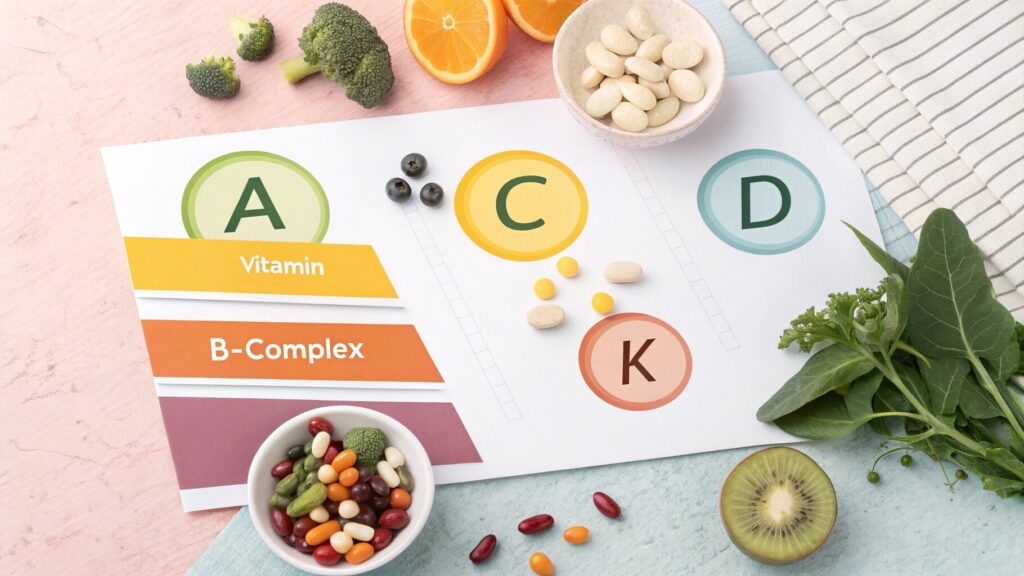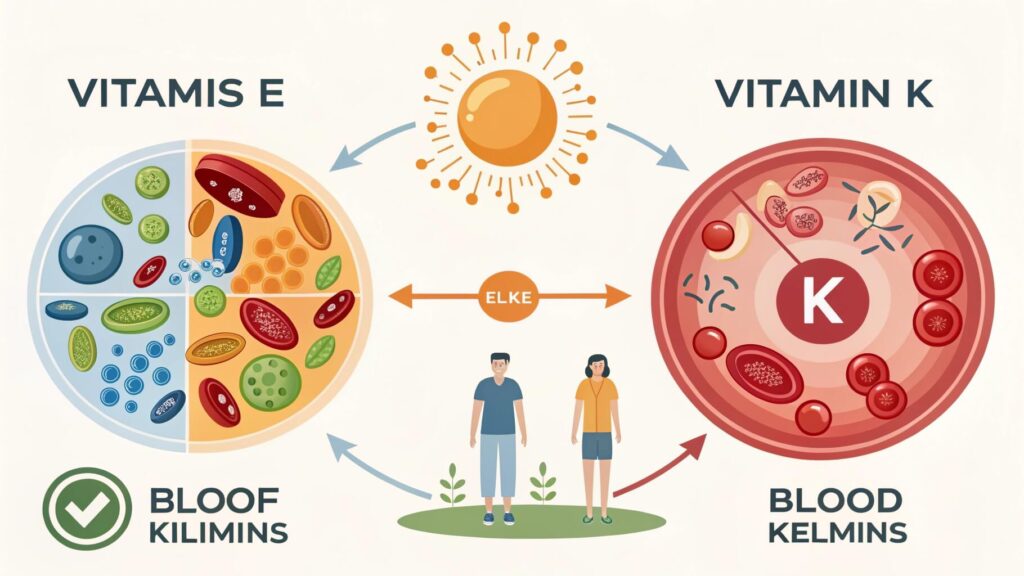Thursday! Ever wonder what magic ingredients fuel our bodies, enable us to grow from small tots into vibrant adults, and keep us strong and healed across life? Not only about height, development covers everything from strengthening muscles and bones to healing tissues and maintaining our energy levels.
Here in sunny Australia, even if we enjoy our outdoor way of life, it’s important to make sure we get all the correct nutrients. Let’s explore the key vitamins that function as the small powerhouses enabling our body’s amazing capacity for growth and maintenance.
Sunshine and Strength: The Dynamic Duo of Calcium and Vitamin D

When we consider development, strong bones first come to mind, most especially in childhood and adolescence. The well-known mineral for bone health is calcium, but it cannot perform as it should without its dependable friend, vitamin D. Consider vitamin D as the key that unlocks our bodies’ ability to absorb calcium. We may not efficiently utilize the calcium we consume to build and preserve bones and strong teeth without adequate vitamin D.
Living down under, we have a special relationship with the sun, a great natural source of vitamin D. Our bodies can generate it if we expose ourselves sensibly to sunlight. Still, we also understand the need to be sunwise to guard our skin.
Fortunately, vitamin D can also be obtained from food sources. Combining these with sources high in calcium lays a strong basis for skeletal development and lifetime bone health. Good sources include:
- Fatty fish (salmon, mackerel)
- Eggs
- Fortified foods like some milk, yoghurt, and cereals
- Calcium-rich sources:
- Dairy products
- Leafy greens (kale, bok choy)
- Almonds
- Tofu
The Visionary Grower: Vitamin A for Cellular Development
Though maybe less discussed than vitamin D, vitamin A is another essential player in the growth game. Essential for cell development and differentiation—that is, for cells to become their particular types and functions—this fat-soluble vitamin is crucial. This process largely forms and maintains healthy skin, tissues, and organs.
Vitamin A is also well-known for:
- Preserving good vision, especially in low light.
- Bolstering a strong immune system, safeguarding the body as it develops.
Two forms of vitamin A are available:
- Preformed vitamin A (retinol): Found in animal products including liver, eggs, and dairy.
- Provitamin A carotenoids (like beta-carotene): Found in vibrant fruits and vegetables.
Think dark leafy greens like spinach and kale as well as bright orange carrots, sweet potatoes, pumpkins, and mangoes. Stocking your plate with these colourful foods guarantees that your body will get the vitamin A required for normal development, from head to toe.
Energy for Expansion: The B Vitamin Brigade
Development calls for a lot of energy! Our bodies need fuel from building new muscle tissue to just running daily activities. Here is where the B vitamins enter the picture: eight vital nutrients cooperating like a well-oiled machine.
Crucial for metabolic processes are:
- B1 (thiamine)
- B2 (riboflavin)
- B3 (niacin)
- B5 (pantothenic acid)
- B6 (pyridoxine)
- B7 (biotin)
- B9 (folate)
- B12 (cobalamin)
From our diet, they help turn proteins, fats, and carbohydrates into usable energy.
Apart from their function in energy generation, some B vitamins have particular growth-related importance:
- Folate (B9): Famously important during pregnancy for preventing birth defects and vital for DNA synthesis and cell division throughout life.
- Vitamin B12: Essential for red blood cells and neurological function.
- Biotin (B7): Contributes to healthy skin and hair.
Whole grains, lean meats, fish, poultry, eggs, dairy, legumes, seeds, and leafy greens—all of which contain B vitamins—keep the body’s energy factories running smoothly to support development and repair. Sometimes, despite a good diet, outside elements can affect the look of other parts of our body; such as in some cases, complementing hair health with quality hair treatment products can help preserve its strength and shine.
Structure and Support: Vitamin C, the Collagen Champion
Although ascorbic acid, or vitamin C, is well-known for its immune-boosting effects, physical development and repair depend on it absolutely. Its key function here is in the synthesis of collagen, a vital protein building block for our:
- Skin
- Bones
- Cartilage
- Ligaments
- Tendons
- Blood vessels
See collagen as the body’s scaffolding; it gives strength and structure.
Vitamin C supports the development of fresh tissue, so it assists in wound healing when we have a cut or scrape. Acting as an antioxidant, it guards our cells against free radical damage as well. During fast development, this protection is crucial.
Fortunately, many mouthwatering foods easily available in Australia abound in vitamin C. Excellent sources include:
- Citrous fruits (oranges, grapefruits)
- Berries
- Kiwi fruit
- Capsicums (particularly red ones!)
- Broccoli
- Tomatoes
- Spinach
Maintaining robust and strong bodily structures depends on plenty of vitamin C. Often reflecting on the outside, feeling healthy and vibrant on the inside gives you that confidence boost whether you’re heading to the beach or dressing in something unique, maybe even some amazing Trelise Cooper dresses.
Vitamins E and K: Process and Protection

Vitamins E and K round out our basic vitamin list.
- Vitamin E: A strong antioxidant, vitamin E guards cell membranes against damage. This attribute is crucial during development since fast-differentiating and dividing cells are present. It keeps tissues all around the body intact and functioning properly. Vegetable oils, nuts, seeds, and green, leafy vegetables all contain vitamin E.
- Vitamin K: Essential for healing injuries (blood clotting), vitamin K is also found in conjunction with vitamin D and calcium in bone metabolism to help to guarantee calcium is deposited in the bones where it is needed. Excellent sources of vitamin K are leafy green vegetables, including broccoli, kale, and spinach.
Although they might not be the main stars in the “growth” narrative, both E and K are absolutely vital in preserving a healthy, developing body.
More Than Only Vitamins
Although vitamins are clearly important, reaching ideal development and preserving a healthy body call for a comprehensive strategy. Fundamentally, a balanced diet is high in macronutrients:
- Protein: For building tissues.
- Carbohydrates: For energy.
- Good fats: For hormone production and cell structure.
Essential components of the equation are also minerals, including:
- Iron: For blood production.
- Zinc: For cell growth and immunity.
- Iodine: For thyroid hormones controlling metabolism.
Usually the best approach to get the variety of nutrients your body needs is to concentrate on whole, unprocessed foods.